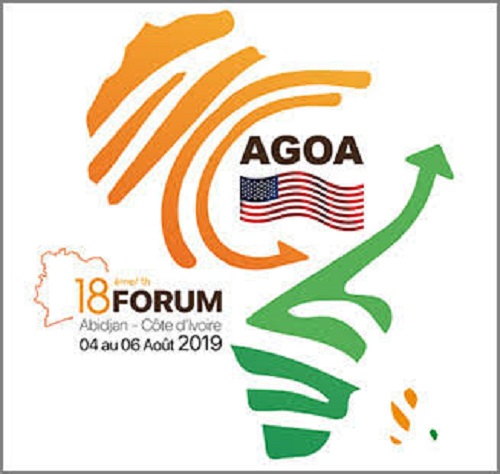Is the end nigh for the AGOA trade legislation?


Without AGOA and other traditional instruments of soft power, the United States will increase its isolation from Africa
COMMENT | WITNEY SCHNEIDMAN | The African Growth and Opportunity Act (AGOA), legislation that has been the cornerstone of the U.S.-African commercial relationship for the last 25 years, is set to expire on September 30th.
Along with the Generalised System of Preferences, AGOA provides duty and quota free access to the U.S. market for over 6,000 products, currently from 32 African nations.
AGOA has created tens of thousands of jobs in Africa, enabled U.S. companies to source a range of products from the region and served as an impactful instrument of soft power. African beneficiary countries have exported more than $100 billion worth of non-crude products to the U.S. since the program’s inception.
There is little reason to believe Congress will pass a last-minute extension.
Supporters of the legislation are hopeful that Congress might attach a last-minute extension to the Continuing Resolution (CR) currently being debated to fund government operations. Unfortunately, similar hopes were unmet in December 2024, the last time Congress passed a CR to keep government open, and AGOA advocates tried to attach renewal language to the legislation.
There is little reason to believe that anything has changed.
While Republican and Democratic members continue to express support for the legislation and its extension, the reality is that AGOA is a non-reciprocal trade agreement at a time when the Trump administration insists on reciprocity in all its trading relationships.
U.S. Trade Representative Jameson Greer described the administration’s trade policy succinctly in a recent New York Times opinion piece: “(B)y using a mix of tariffs and deals for foreign market access and investment, the United States has laid the foundation for a new global trading order.”
Using trade as a stimulus for economic development in Africa – AGOA’s underlying rationale – is not a priority for this administration, even though it has advocated an Africa policy based on “trade, not aid.” Moreover, if there is a government shutdown on September 30th, the legislation would expire.
Short-term Extension
Even a short-term extension by Congress would be helpful. Keeping AGOA in place for one or two years would not result in renewal of apparel contracts in countries such as Lesotho, since longer lead times are needed for companies to place job-creating orders.
Nevertheless, a brief extension would preserve a tariff advantage for some African nations. Without AGOA, manufacturers would see a steep rise in tariffs on their products, including an increase of 10 percent to 43 percent for synthetic textiles.
A short-term renewal would also provide an opportunity for Congress to explore how a modernised AGOA can best serve the interests of the United States and its partner nations on the continent.
In the last Congress, Senators James E. Risch (Republican-Idaho) and Chris Coons (Democrat-Delaware) put forward legislation that addressed many of these issues. For example, their proposed legislation would modify AGOA’s rules of origin. This would allow inputs from North African countries who are members of the African Continental Free Trade Area (AfCFTA) to count toward AGOA’s requirement that 35 percent of a product’s value originate in the region. North Africa countries currently are not eligible for AGOA benefits.
Modifying the rules of origin would align AGOA with the AfCFTA’s goal of developing intra-African supply chains, including critical minerals that could be sent to the U.S. In taking this step, Washington would be supporting the emergence of Africa’s $3.4 trillion free trade area, the world’s largest free trade area, which would have obvious benefits for U.S. companies.
In addition, Coons and Risch proposed to renew AGOA for 16 years, similar to the time frame of the U.S.-Mexico-Canada trade agreement. This would provide the policy certainty that is critical for American and African businesses to establish enduring commercial relationships.
Post-AGOA
What happens if AGOA expires?
In many respects, it is already happening as we are seeing the emergence of the type of bilateral deals in Africa that the administration is pursuing in other regions.
Since coming into office, the Trump administration has prioritised obtaining a peace agreement between the Democratic Republic of the Congo (DRC) and Rwanda while working with U.S. companies to enter the mineral-rich DRC.
In fact, there has been virtually no U.S. presence in the DRC’s mining sector since the last American company exited in 2016. In 2024, the DRC produced 72 percent of global mined cobalt, which is critical to the production of a range of products, including electric vehicles, smartphones and jet engines. Chinese state-owned enterprises and policy banks control 80 percent of the DRC’s cobalt production.
No previous administration has undertaken this combination of commercial diplomacy and peace negotiations in the DRC, and it is most timely. Nevertheless, sustained engagement will be required to achieve any meaningful outcome given the entrenched animosities in the region and the long lead time necessary to make mines commercially viable.
Apart from its efforts in the DRC and Rwanda and vital ongoing support for the Lobito Corridor initiative, which was started during the Biden administration, this administration has not undertaken any other significant commercial negotiations in the region. At the same time, a host of African nations have sent ministers to Washington in search of more lenient tariffs and mutually beneficial transactions.
While 28 African countries have seen their tariffs reduced to 10 or 15 percent from the higher levels announced on April 2, there have been no announcements of new reciprocal trade deals other than in the DRC.
Without AGOA and other traditional instruments of soft power, such as USAID, the United States will increase its isolation from Africa at a time when other countries are becoming more engaged. As one example, the U.S. used to be Africa’s largest trading partner. Today, China’s trade with the region is three times more than that of the U.S. Not only is China viewed more favourably in Africa than is the United States, but in July Beijing eliminated tariffs on 8,000 products coming from the 53 countries on the continent with which it maintains diplomatic relations.
Should AGOA expire without an opportunity to make it more effective, the United States will lose a unique commercial foothold on a continent that will become home to one in four people in the world over the next 25 years.
****

Witney Schneidman is a former Deputy Assistant Secretary of State for African Affairs, CEO of Schneidman & Associates, and a Nonresident Senior Fellow at the Brookings Institution.


























































